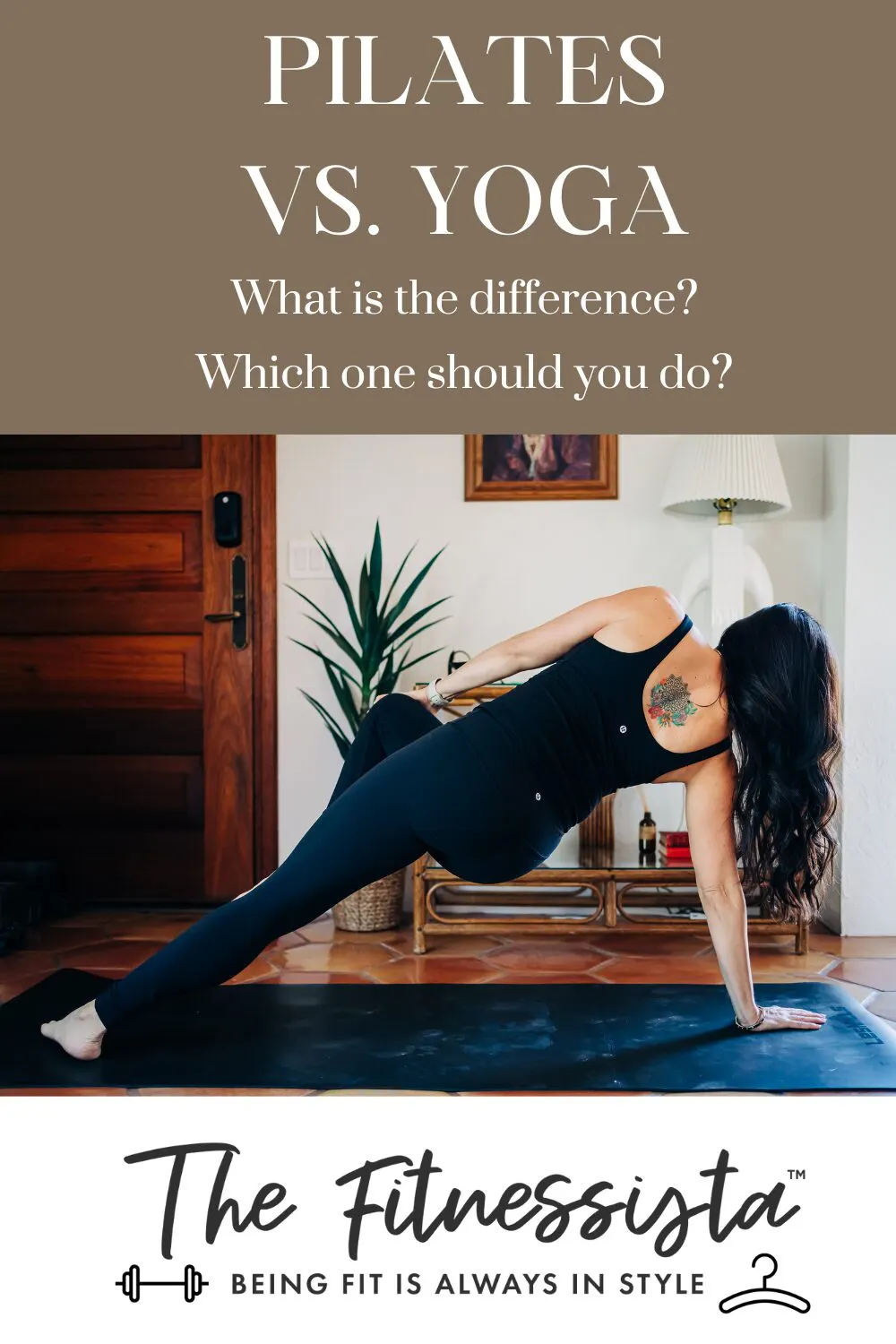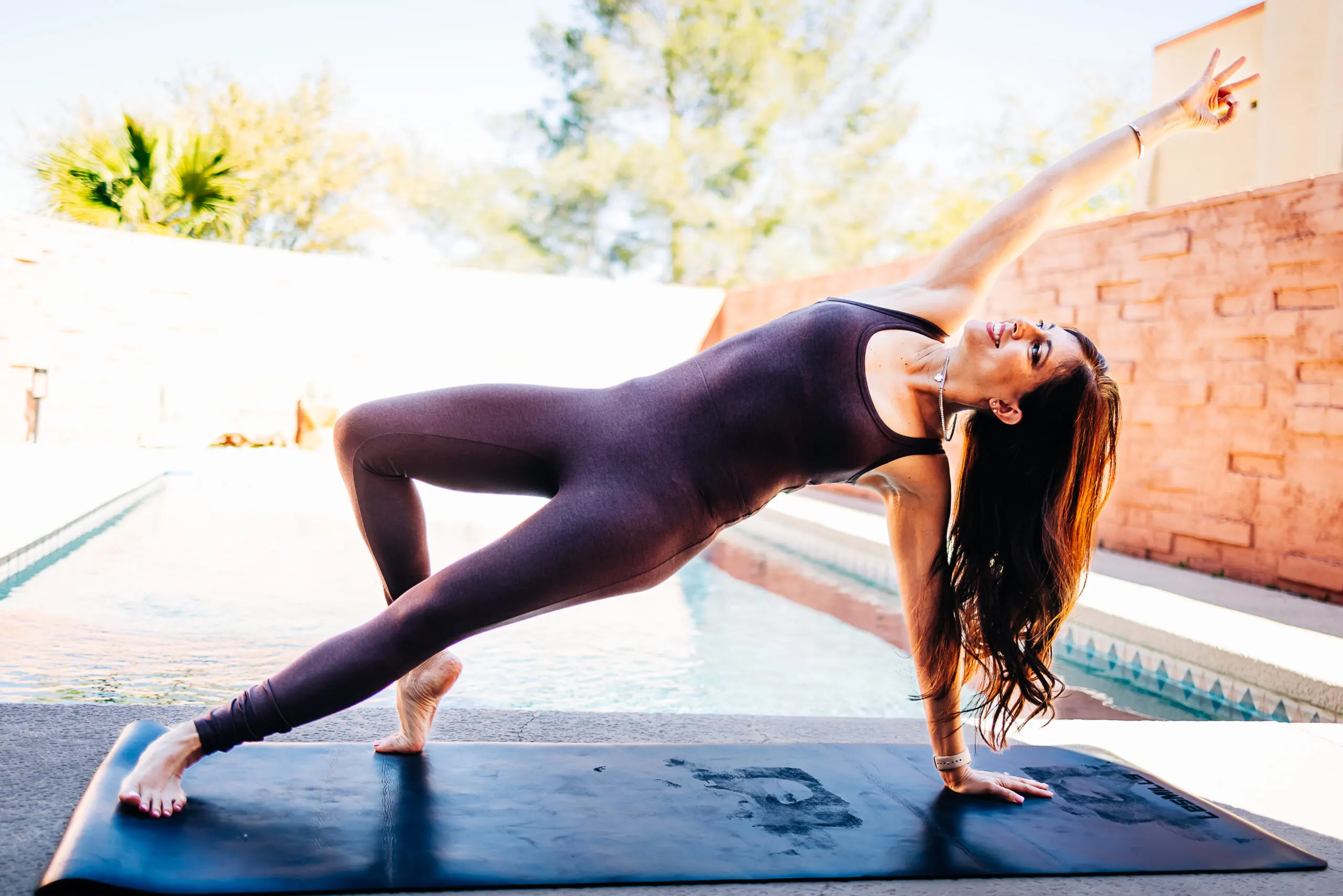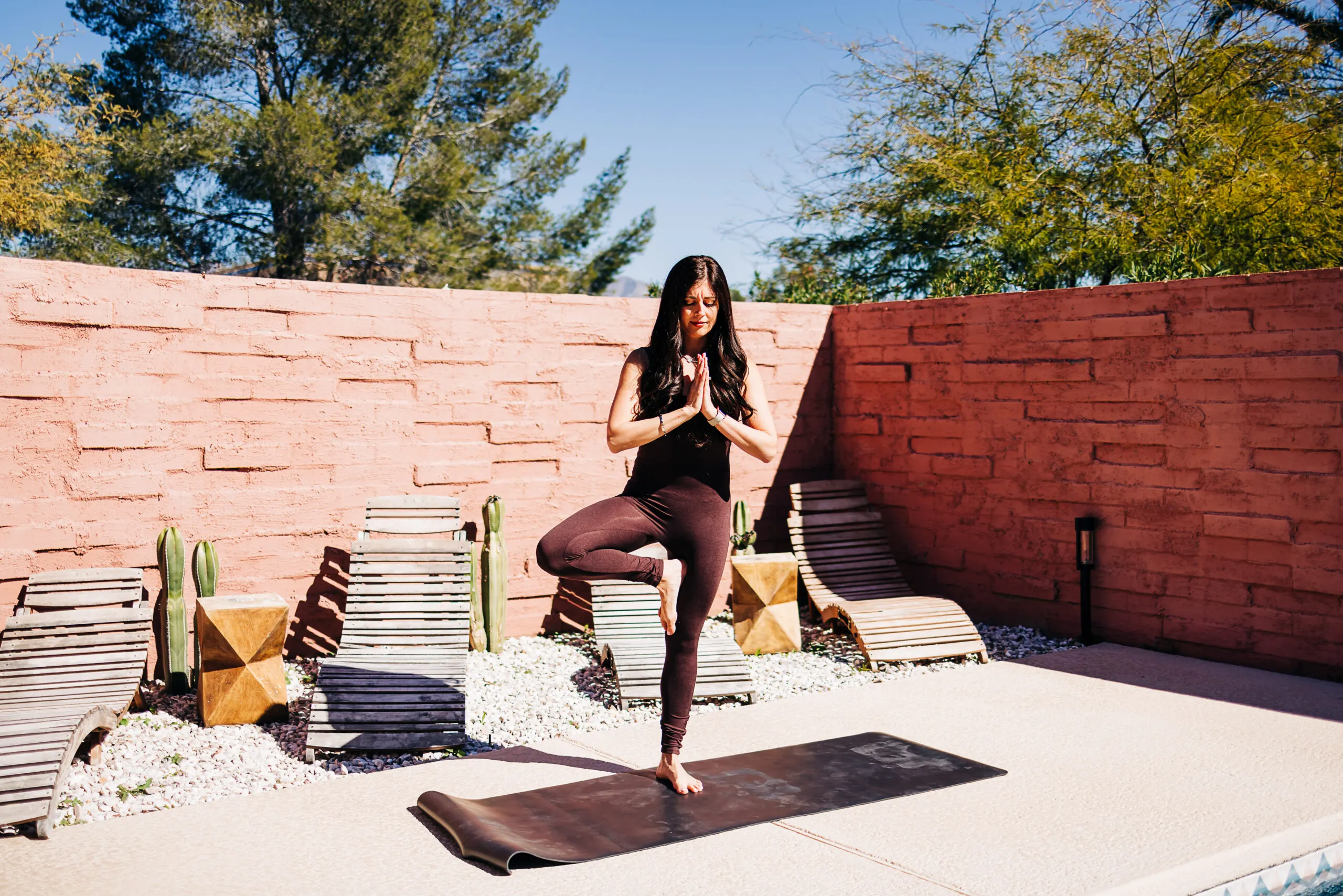
I share a comparison between Pilates and yoga, and which one do I like better 
Hello friends! Happy Monday! How was the weekend? I hope you had a great time! We officially have spring fever there. I want to replant the garden (I let everything outside die when I was dealing with the big eye saga) and clean it all up, while the kids are already begging to jump into the pool in their pajamas.
I’m enjoying this short-lived sweet spot of weather before it hits a thousand degrees by walking and hiking as much as possible!
For today’s post, I wanted to talk a little about Pilates and yoga, and the differences between these two popular low-impact workout options.
In the world of mind-body fitness, Pilates and yoga are two prominent practices, each offering a unique approach to physical and mental well-being. While they share some similarities, such as emphasizing breath control and the mind-body connection, there are clear differences between the two. There are nuances to Pilates and yoga that make them super special, and I wanted to talk about muscle engagement, styles, benefits, and considerations for incorporating them into your workout routine. As always, talk to a doctor before making any changes to your fitness or nutrition.

Pilates vs Yoga: Understanding the Difference and Benefits
Target muscle groups:
Both Pilates and yoga involve various muscle groups, although with different emphases. Pilates primarily targets core muscles, including the abdominals, obliques, and lower back, while engaging muscles throughout the body to improve strength, flexibility, and stability.
On the other hand, yoga encompasses a broader range of muscle groups, including the core, arms, legs and back, with different poses targeting specific areas depending on the style practiced. I feel like they are both great full body exercises, but Pilates definitely includes more core work.

Pilates and Yoga Styles:
Pilates comes in several forms, the most common being mat-based Pilates and equipment-based Pilates using apparatus such as the reformer, cadillac, and chair. Mat Pilates focuses on bodyweight exercises performed on a mat, while equipment-based Pilates incorporates resistance provided by springs and pulleys to enhance the workout. In contrast, yoga encompasses several styles, such as Hatha, Vinyasa, Ashtanga, Bikram, and Yin, each with its own focus on movement, breathing, and meditation.
Pros and cons:
Pilates offers an effective, low-impact workout to develop core strength, improve posture, and improve overall body awareness. Its focus on controlled movements and alignment makes it suitable for people recovering from injuries or seeking rehabilitation. However, Pilates may lack the spiritual and meditative aspects found in certain yoga practices.
Yoga, on the other hand, not only improves physical strength, flexibility and balance, but also promotes mental clarity, stress reduction and emotional well-being through its meditative components. With numerous styles available, people can choose a practice that aligns with their preferences and goals. However, some styles of yoga may require more physical effort and flexibility than others, potentially posing challenges for beginners. I firmly believe that there is a yoga for everyone; You just need to find the type you like and that works for you!
Incorporating into your routine:
Both Pilates and yoga can be incorporated into your exercise regimen depending on your preferences, goals, and schedule. Beginners can start with one or two sessions per week and gradually increase the frequency as they become more comfortable and experienced. Those looking for a balanced approach to fitness can alternate between Pilates and yoga sessions throughout the week to reap the benefits of both practices.
Online training options:
In today’s digital age, accessing Pilates and yoga classes has never been easier. Numerous online platforms offer a variety of classes to suit various skill levels, interests, and time constraints. From live-streamed sessions to pre-recorded tutorials, people can choose the format that best suits their needs and preferences, allowing for convenient and flexible workouts from the comfort of home.

Here are some of my favorite online yoga and Pilates options:
Yoga:
Pilates:
For some of my favorite workouts you can try for free, check out this post.
If you’re looking for balanced strength training that you can implement with your favorite group classes, try Fit Team here.
In the debate between Pilates and yoga, there is no one-size-fits-all answer. Both practices offer unique benefits for physical and mental well-being and serve people with diverse preferences and goals. Whether you’re looking to build core strength, improve flexibility, or cultivate inner peace, Pilates and yoga provide valuable tools to improve your overall health and vitality.
By understanding the differences and benefits of each practice, you will be able to make informed decisions to create a complete exercise routine that aligns with your lifestyle and goals.
My favorite: I love them both!!! I used to prefer yoga, but after incorporating reformer classes into my life, I can’t choose. They are both very different and I love incorporating both options into my monthly routine.
So, tell me friends: are you team yoga or team Pilates? Or both??
xo
gina







